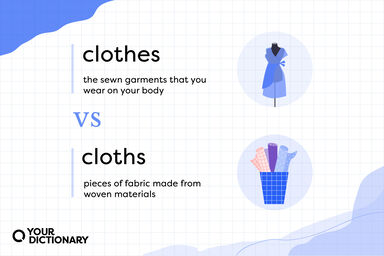Wear Definition
- attrition
- corrosion
- erosion
- detrition
- habiliment
- wearable
- vesture
- article of clothing
- clothing
- wearing
- result of friction
- disappearance
- dilapidation
- wearing away
- impairment
- To exercise controlling authority in a household.
- To be weakened or eroded gradually:
Her patience is wearing thin.
- To become less convincing, acceptable, or popular, as through repeated use:
excuses that are wearing thin.
- to make or become worn; lose or cause to lose thickness or height by use, friction, etc.
- to tire out, or exhaust (a person); weary
- to pass away or diminish by degrees
- to make or become useless from continued wear or use
- to waste or consume by degrees
Idioms, Phrasal Verbs Related to Wear
Origin of Wear
-
From Middle English weren, werien, from Old English werian (“to guard, keep, defend; ward off, hinder, prevent, forbid; restrain; occupy, inhabit; dam up; discharge obligations on (land)"), from Proto-Germanic *warjanÄ… (“to defend, protect, ward off"), from Proto-Indo-European *wer- (“to close, cover, protect, save, defend"). Cognate with Scots wer, weir (“to defend, protect"), Dutch weren (“to aver, ward off"), German wehren (“to fight"), Swedish värja (“to defend, ward off"), Icelandic verja (“to defend").
From Wiktionary
-
From Middle English weren, werien, from Old English werian (“to clothe, cover over; put on, wear, use; stock (land)"), from Proto-Germanic *wazjanÄ… (“to clothe"), from Proto-Indo-European *wes- (“to dress, put on (clothes)"). Cognate to Sanskrit वस्ते (vaste), Ancient Greek ἕννυμι (hennumi, “put on"), Latin vestis (“garment"), Albanian vesh (“dress up, wear"), Tocharian B wäs-, Old Armenian Õ¦Õ£Õ¥Õ¶Õ¸Ö‚Õ´ (zgenum), Welsh gwisgo, Hittite waÅ¡-.
From Wiktionary
-
Middle English weren from Old English werian wes-2 in Indo-European roots
From American Heritage Dictionary of the English Language, 5th Edition
Related Articles
Find Similar Words
Find similar words to wear using the buttons below.





